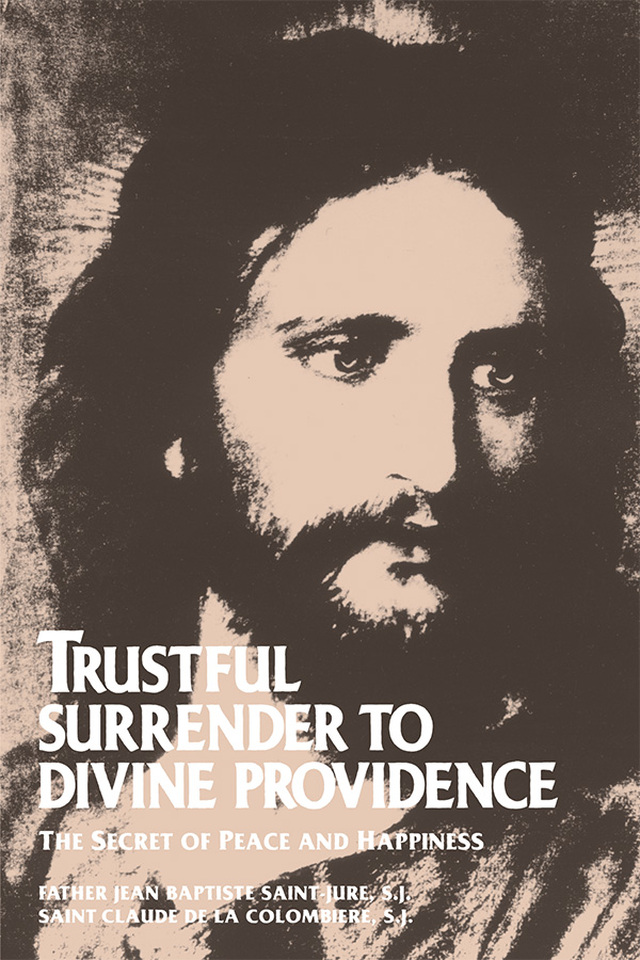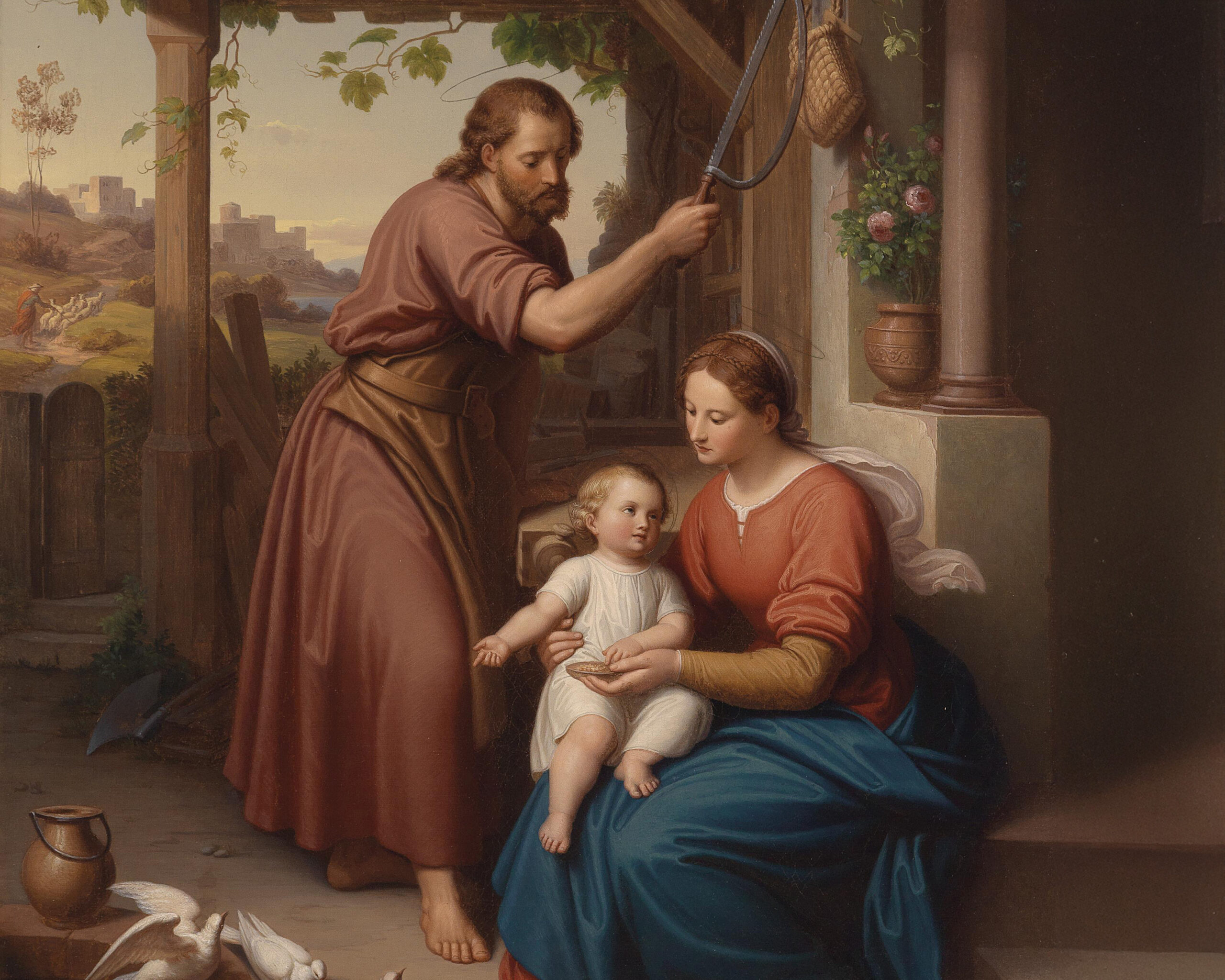If we desire holiness, we must learn to conform to God’s will in all things. It is very pleasing to God when we surrender ourselves to His will in both times of trial and favor. In this excerpt from Trustful Surrender to Divine Providence, readers will learn the secret of peace and the surest way to sanctity.
In Interior Trials
We ought to conform to God’s Will in interior trials, that is to say in all the difficulties met with in our spiritual life, such as temptations, scruples, anxieties, aridity, desolation and so on. Whatever immediate cause we may attribute to these states of mind, we must always look beyond to God as their author. If we think they come from ourselves, then it is true to say that they have their origin in the ignorance of our mind, the over-sensitiveness of our feelings, the disordered state of our imagination or the perversity of our inclinations. But if we go back farther, if we ask where the defects themselves come from, we can only find their origin in the will of God who has not endowed us with greater perfection, and by making us subject to these infirmities has laid on us the duty of bearing all the consequences of them for our sanctification until He is pleased to put an end to them. As soon as He judges it the right moment to touch our mind or heart, we shall be enlightened, fortified and consoled.
Even if we suppose that our disturbed state is the work of the devil, it must still be attributed to God. Does not the history of Job show that Satan has no power over us unless God gives it to him? When Saul was beset by temptations of jealousy and hate towards David, the Scriptures tell us, the evil spirit from God came upon Saul. But if the spirit was from God, how could it be evil? And if it was evil, how could it be from God? It is evil because of the devil’s evil and depraved will to afflict men in order to bring them to perdition, and it is from God because God allows him to afflict them in His plan of salvation for them.
Moreover we learn from the principles of our Faith and the teaching of the Saints that often God Himself by His immediate action withdraws the visible effects of His grace for purposes in accordance with His wisdom and goodness. How many persons who have become lukewarm and careless in their duties are roused by the awareness led to the practice of the highest virtue by interior trials! Who can measure the degree of heroic virtue saints like St. Ignatius, St. Teresa or St. Francis de Sales attained by this means? We must consider it the action of a Providence unceasingly attentive to the welfare of His children, who feigns to abandon them in order to rouse them from slumber or increase their humility, self-distrust and self-renouncement, their confidence in God, submission to His Will and perseverance in prayer. Hence instead of allowing ourselves to become discouraged and fainthearted under trials which may seem to overwhelm us, let us act in the same way as we do when our bodies are sick, consult a good doctor—a good spiritual director—and applying the remedies he advises, patiently await the effects that it pleases God to give.
Everything is meant for our good, and such trials ought to be counted as special graces from God. Whether or not they are sent as a punishment for our sins, they come from Him and we should thank Him for them, placing ourselves entirely in His hands. If we bear them with patience we shall receive greater grace than if we were filled with a sense of fervent devotion.
In Spiritual Favors
Finally—and this is perhaps the most difficult aspect of what concerns the practice of conformity to the will of God—we should desire virtue itself and the degrees of grace only insofar as God wishes to give them, and not desire more. Our whole ambition should be to attain the degree of perfection that has been appointed for us, since it has not been given to everybody to reach the same height. It is obvious that however well we may correspond with the graces given us, we can never equal the humility, charity and other virtues of the Blessed Virgin. And who can even presume to imagine that he can reach the same heights as the Apostles? Who can equal St. John the Baptist whom Christ called the greatest of the children of men? Or St. Joseph to whom God entrusted His Son? In this we must as in all else submit to the will of God. He must be able to say of us, My will is in them; it rules and governs everything.
So when we hear or read that God in a short time has brought some souls to a very high degree of perfection and shown them signal favors, enlightened their understanding and imbued their hearts with His love, we should repress any desire to be treated likewise so as not to fall short in pure love of conformity to His Will. We should even unite ourselves still more closely to His Will by saying, “I praise Thee, O Lord, and bless Thee for deigning to show Thyself with so great love and familiarity to the souls Thou hast chosen. The honor you show them is above all measure, but the accomplishment of Thy holy will is of more concern to me than all the marks of favor Thou hast shown Thy Saints. The only favor I ask is that in no single thing should I ever do my own will and that my will be entirely at one with Thine. Let others ask for what they wish, but my sole request is that I may wish what Thou wishest and Thy purposes may be accomplished perfectly in me. Do with me, in me, and by me all that Thou wilt without resistance from me, in time and in eternity.”
Summary and Conclusion
This submission and conformity in all things to His Will is so pleasing to God that it gained for David the honor of being called ‘a man after His heart.’ I have found, He says, David the son of Jesse, a man after my heart who will do all that I desire. David, in fact, was so obedient to the commands of Providence that his heart was like wax, ever ready to receive indifferently any impression from the hand of God. My heart is steadfast, O God, my heart is steadfast, he exclaims. St. Bernard asks why in this verse of the psalm David twice repeats the words My heart is steadfast, and replies that by this repetition he meant he was ready to accept bad fortune as well as good, disgrace as well as honor, and was prepared for all that God willed. Let us, too, enter resolutely into the state of steadfastness which rejoices the heart of our heavenly Father and will be the means of our sanctification, the source of peace and joy in this world and the pledge of our eternal happiness in the next.
ooo
This article is taken from a chapter in Trustful Surrender to Divine Providence: The Secret of Peace and Happiness by St. Claude de la Colombière, Fr. Jean Baptiste Saint-Jure which is available from TAN Books.








